Disposing of a dead rat requires careful handling to minimise health risks associated with potential diseases and parasites. Dead rats can be distressing and potentially hazardous situations that need immediate and careful attention.
A rat carcass must be handled properly to protect you, your family, and your living environment from potential health hazards. We’ll explore step-by-step methods to dispose of rodent carcasses safely, discuss necessary protective equipment, and provide detailed instructions on handling and removal of dead rats.
Regardless of the situation, you should know how to safely dispose of the animal carcass to avoid the dead rat smell, as well as the potentially life-threatening health risks associated with dead rodents.
Table of Contents
The danger of dead rats in your house or garden
Dead and decomposing rodents are a serious health hazard for you, your family, and any pets you may have. The greatest risk comes from the parasites that the carcasses are hosting, fleas and ticks in particular.
Dead rats in your house or garden pose significant health risks that should not be underestimated. A dead rat can become a breeding ground for pests and pathogens, posing serious health hazards to you and your family. Contact with the rat carcass, its droppings, or even the air around it can transmit diseases such as hantavirus, leptospirosis, and salmonella.
Furthermore, dead rats can attract other pests, such as flies and maggots, creating an unsanitary environment. When you encounter a dead rat, you need to know what to do with it in order to mitigate these risks. The removal of dead rats requires protective gear and safe disposal methods to prevent exposure to pathogens and bacteria.
Another way in which people contract diseases from dead rodents is through incorrect handling of the rat carcass. Even if treated quickly, the diseases from rotting rodents can affect your health.
Check also:
How to dispose of a dead rat in your garden
This is one of the most common places to find dead animals. In the majority of cases, it will be a bird, pet, squirrel or some other small rodent. In the UK, you are permitted to bury rats and animals (excluding livestock and horses) in your garden.
We recommend that the grave is at least two feet deep and includes a layer of rock above the corpse to stop it from becoming unearthed by scavengers. But if you are not comfortable with this or are worried about vengeful rat ghosts, there are some other options available.
Your local vet, or council authority, may assist you in having the corpse incinerated, but it is important that you do not attempt to burn the body yourself, or you may end up being visited by the authorities.
A third option is to simply dispose of the dead rat at the landfill. However, check with the staff first, as some facilities do not allow the disposal of hazardous biological materials.
No matter which option you choose, you will need to take the following precautions:
- Do not touch the corpse with your bare hands; ALWAYS wear gloves.
- Wear a long-sleeved top and trousers to avoid parasites.
- Try to minimise your physical contact with the corpse as much as possible. Scoop it up with a shovel or use the inside of a bin bag to pick it up.
Read: How to Get the Rid of Rats in the Garden without Poison
How to dispose of a dead rat in a wall
If a rat, a squirrel, or another animal has entered your home, got stuck and subsequently died, you can tell by looking for these signs, such as swarms of flies around a particular area or unexplained stains on your walls.
- Locate the dead rat –The most effective method is also the simplest – by smell. Sniff around the walls until you find the area with the strongest smell.
- Cut a hole in the wall to remove the carcass and clean up the juices, as well as any maggots. Have everything you will need ready before removing the dead rodent, though. The last thing you want is to run around your house holding a decomposing rat while frantically searching for a bag.
- Contact dead rat removal company – When you book pest control for dead rats, they will come to your home and perform an inspection to locate the dead rat. Once found, they will remove the carcass and seal it in a sanitary bag.
How to get rid of the residual smell of a dead rat
Despite getting rid of the dead rat, you will most likely find that the unpleasant stench of decay is still present. You should prepare yourself for a bout of intense cleaning in order to eliminate the smell.
- Wear gloves throughout the cleaning process.
- Open as many windows as possible.
- Use a cloth or paper towels to clean up any juices, fur and anything else left by the corpse.
- Spray the area with an enzyme cleaner and allow it to sit for 10-15 minutes. This will give the enzymes time to break down all biological material.
- Wipe the area.
- Spray the area with a disinfectant and wipe.
If the rat has died touching anything made from fabric, such as a carpet, rug, or curtains, wash them on a high-temperature setting with hydrogen peroxide mixed in with your usual laundry detergent. If it cannot be washed, you will need to throw it away as the smell will persist, and the area may retain some dangerous bacteria.
Best way to remove a dead rat
As previously mentioned, you should take every precaution you can when disposing of dead animals. The bacteria, viruses, and parasites they carry pose a severe risk to your health, as well as the health of your family and pets. Our recommended safety precautions are:
- Latex or rubber gloves – never touch a dead rat with your bare hands.
- Overalls or a long-sleeved shirt and trousers – to protect you from parasites, such as ticks and fleas.
- A HEPA face mask – this will stop you from breathing in the nastiness.
- Keep pets and children as far away from the corpse as possible.
- Seal containers or bags as soon as possible after placing the carcass inside.
- When finished with the disposal, take a shower and wash the clothes you were wearing in a high-temperature setting.
How to disinfect after dead rat removal
A thorough disinfection after removing a dead rat is necessary to prevent health hazards. This is how you can effectively eliminate the odour from a dead rat:
- Open windows and doors for 30 minutes before starting to clean the space;
- Put on protective gear, including rubber gloves, long sleeves, and a N95 or comparable face mask;
- Make a disinfectant solution using one part bleach to nine parts water, or use a commercial disinfectant with antiviral and antibacterial properties;
- Spray the area where the dead rat was found with disinfectant solution, including droppings, urine stains, and nesting materials. Let it soak for at least 5 minutes and rinse;
- To wipe up the disinfected area, use paper towels or disposable cloths, placing the used materials directly into a plastic bag;
- Disinfect all surfaces that may have been touched by the rat, including countertops, floors, and any items that may be contaminated. The best way to disinfect fabric items like carpets or upholstered furniture is to steam clean or shampoo them;
If you’re uncomfortable with the cleaning process or dealing with dead rodents you can contact dead rat removal company.
What should you avoid when disposing of a dead rat
Avoid these critical mistakes when disposing of a dead rat:
- Do not touch the rat with your bare hands. Direct contact can lead to dangerous diseases, bacteria, and parasites;
- Do not pick up the rat by its tail or poke it with a stick and keep children and pets away from the rodent carcass;
- You should not vacuum or sweep up rat droppings, as this can create airborne particles that can cause harm to your health;
- You should never burn a dead rat yourself, as this may result in legal complications;
Disposing rodent carcasses
So there we have it, your guide on how to dispose of dead animals safely. We hope you never have to experience this, but if you do, at least you are now armed with the knowledge of how to deal with the situation safely.
Some areas in the UK have specific rules for animal disposal, so be sure to check your local regulations. Local authorities usually have specific requirements for disposing of dead animals. Consider contacting a dead rat removal company if you are uncomfortable handling the carcass.
Are you dealing with a pest infestation?
You don't have to be alone in the battle against pests. Hire a professional pest expert!
Call usImage source: Dentjes/shutterstock.com
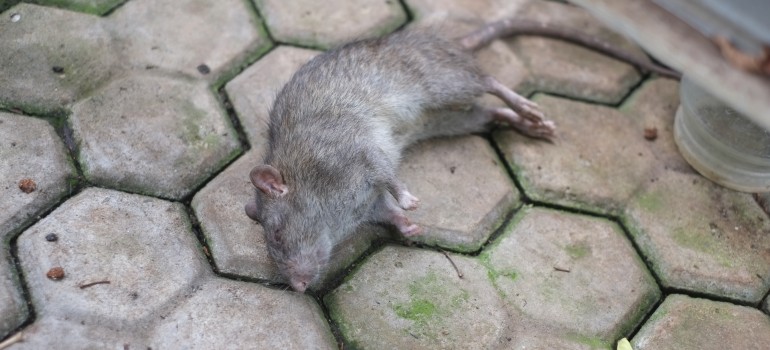

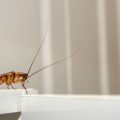



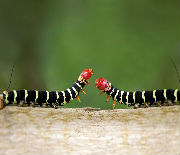
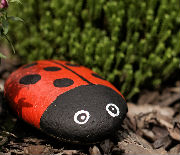
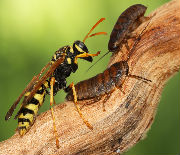
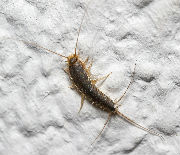
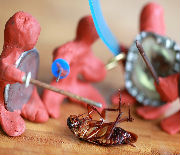
We have a basement. And every morning is full of mouse pup. The traps don’t work any more. The rats lick the peanut butter, next morning the come back for more.
Hello Celia,
Rats can be very clever. If you haven’t catched them with the traps yet, we highly recommend you to book a rat control service. The exterminator will use bait boxes filled with rodenticides. They are very powerful and the expert knows how to execute the treatment so that it will be effective enough to rid of the rats.
Regards,
Fantastic Pest Control Team
Thanks for noting that one should avoid touching the corps without gloves, and to try scooping it with a shovel. My cousin found a dead raccoon in his yard and he wants to remove the animal himself. I will advise he hires someone professionally instead because I’ve heard that they carry lots of diseases.
Rats can be very clever. If you haven’t catched them with the traps yet, we highly recommend you to book a rat control service.